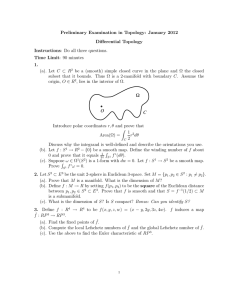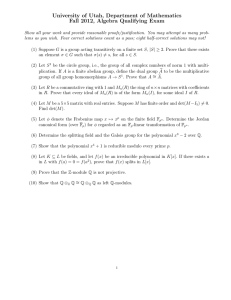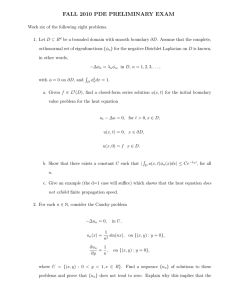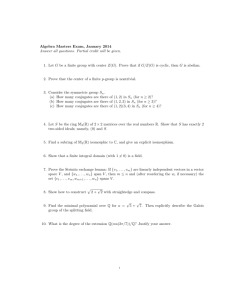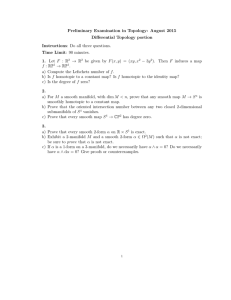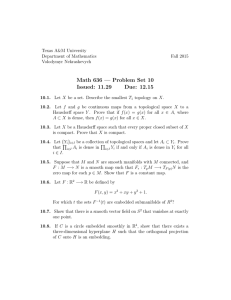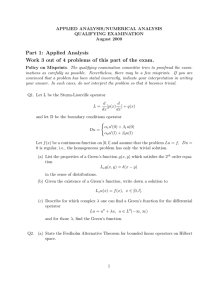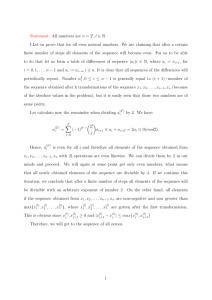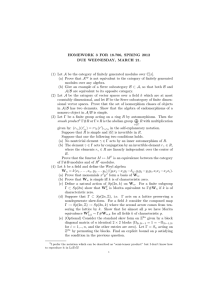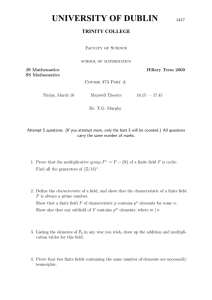Homework 5 Exercise 1
advertisement
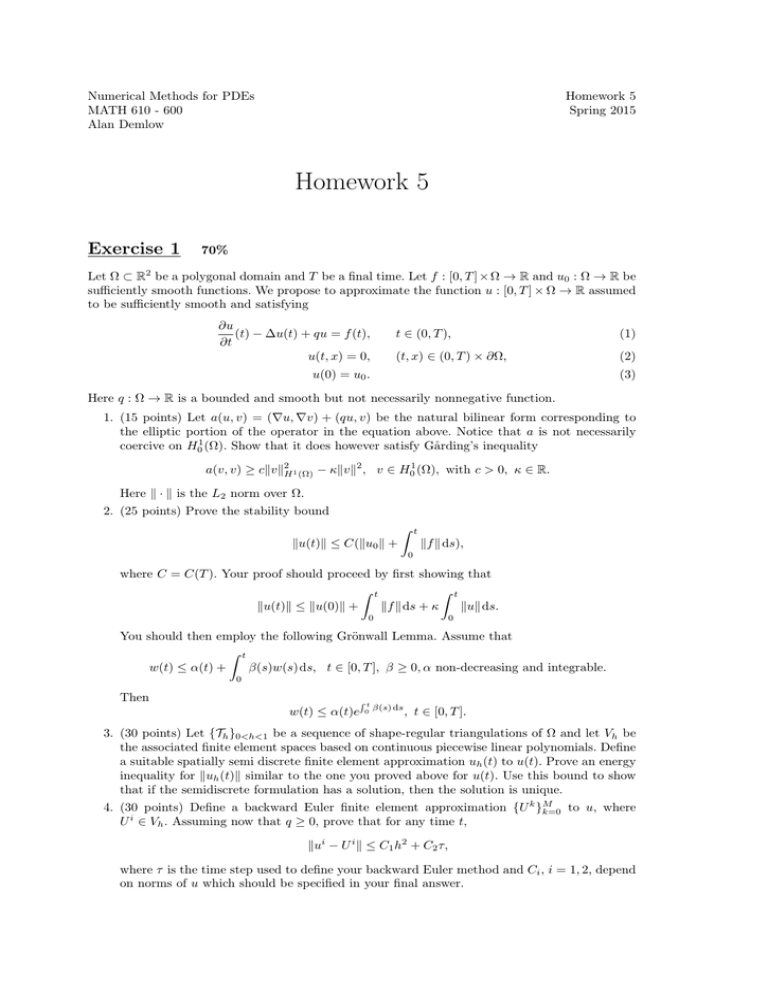
Numerical Methods for PDEs
MATH 610 - 600
Alan Demlow
Homework 5
Spring 2015
Homework 5
Exercise 1
70%
Let Ω ⊂ R2 be a polygonal domain and T be a final time. Let f : [0, T ] × Ω → R and u0 : Ω → R be
sufficiently smooth functions. We propose to approximate the function u : [0, T ] × Ω → R assumed
to be sufficiently smooth and satisfying
∂u
(t) − ∆u(t) + qu = f (t),
∂t
u(t, x) = 0,
t ∈ (0, T ),
(1)
(t, x) ∈ (0, T ) × ∂Ω,
(2)
u(0) = u0 .
(3)
Here q : Ω → R is a bounded and smooth but not necessarily nonnegative function.
1. (15 points) Let a(u, v) = (∇u, ∇v) + (qu, v) be the natural bilinear form corresponding to
the elliptic portion of the operator in the equation above. Notice that a is not necessarily
coercive on H01 (Ω). Show that it does however satisfy Gårding’s inequality
a(v, v) ≥ ckvk2H 1 (Ω) − κkvk2 , v ∈ H01 (Ω), with c > 0, κ ∈ R.
Here k · k is the L2 norm over Ω.
2. (25 points) Prove the stability bound
Z
ku(t)k ≤ C(ku0 k +
t
kf k ds),
0
where C = C(T ). Your proof should proceed by first showing that
Z t
Z t
ku(t)k ≤ ku(0)k +
kf kds + κ
kuk ds.
0
0
You should then employ the following Grönwall Lemma. Assume that
Z t
w(t) ≤ α(t) +
β(s)w(s) ds, t ∈ [0, T ], β ≥ 0, α non-decreasing and integrable.
0
Then
Rt
w(t) ≤ α(t)e
0
β(s) ds
, t ∈ [0, T ].
3. (30 points) Let {Th }0<h<1 be a sequence of shape-regular triangulations of Ω and let Vh be
the associated finite element spaces based on continuous piecewise linear polynomials. Define
a suitable spatially semi discrete finite element approximation uh (t) to u(t). Prove an energy
inequality for kuh (t)k similar to the one you proved above for u(t). Use this bound to show
that if the semidiscrete formulation has a solution, then the solution is unique.
4. (30 points) Define a backward Euler finite element approximation {U k }M
k=0 to u, where
U i ∈ Vh . Assuming now that q ≥ 0, prove that for any time t,
kui − U i k ≤ C1 h2 + C2 τ,
where τ is the time step used to define your backward Euler method and Ci , i = 1, 2, depend
on norms of u which should be specified in your final answer.
